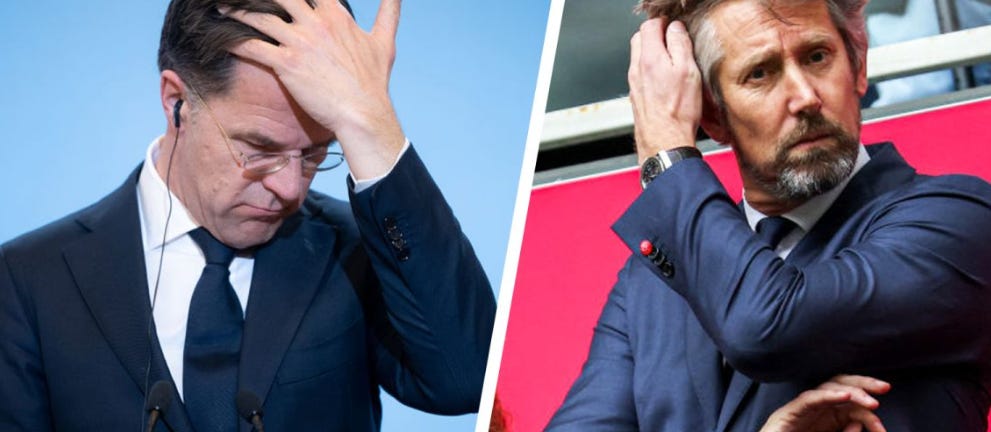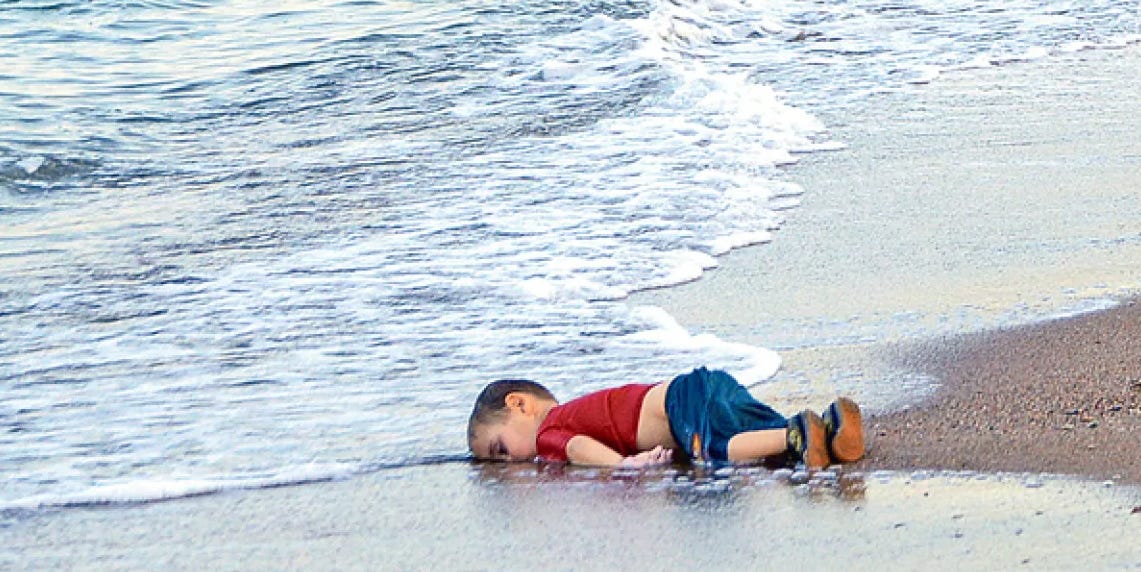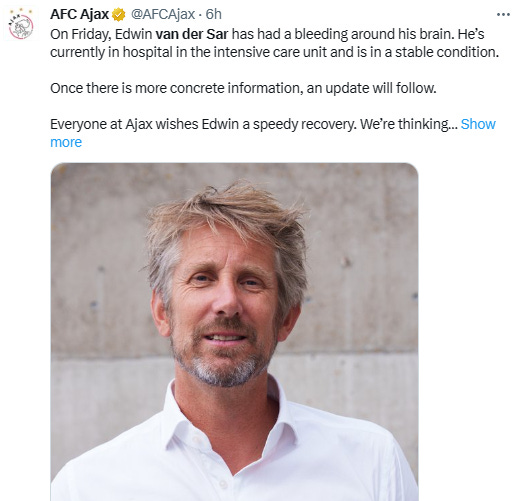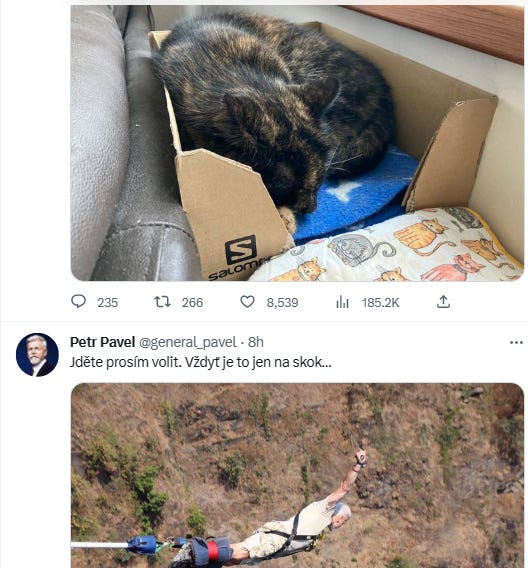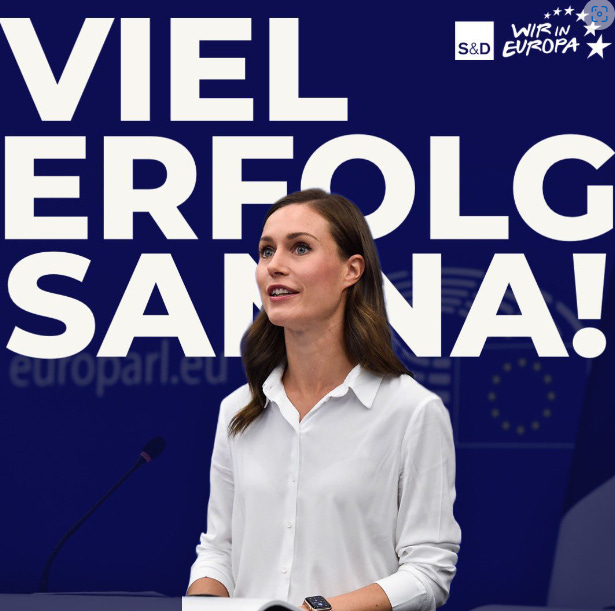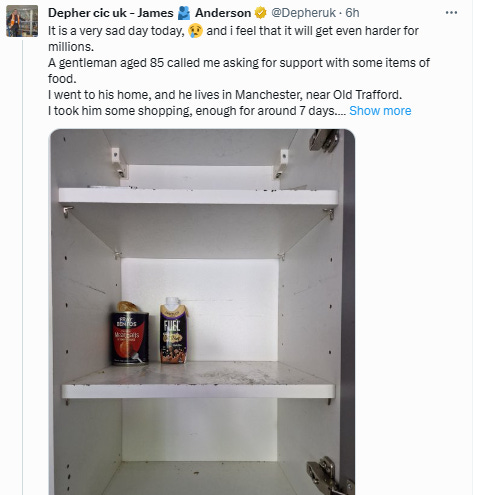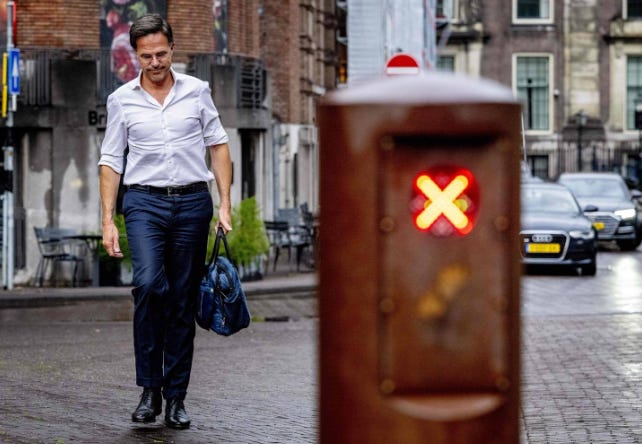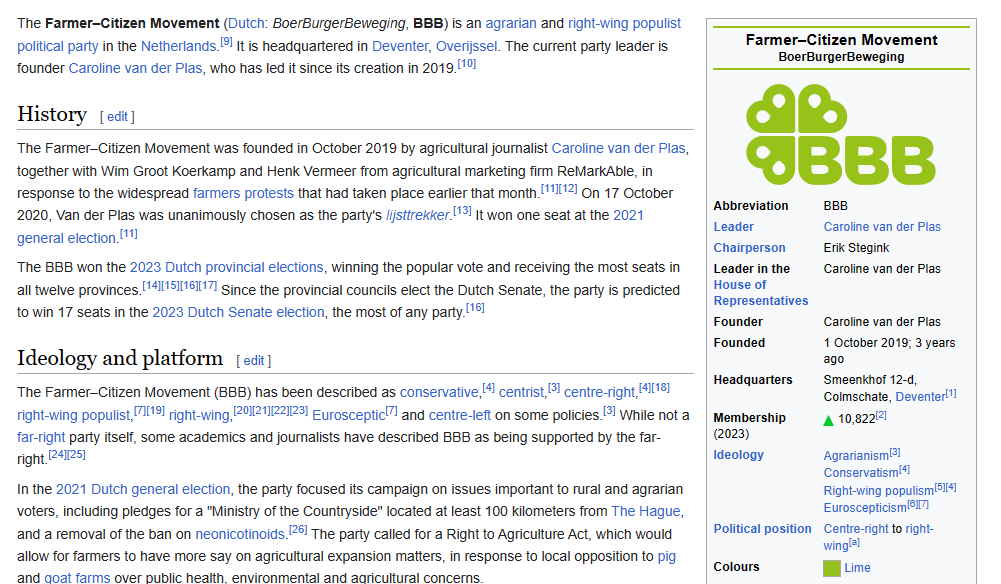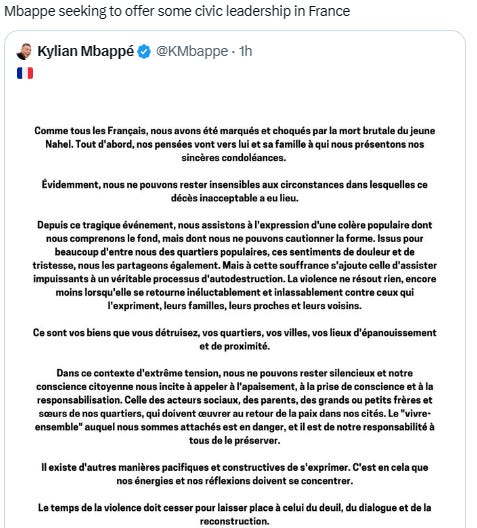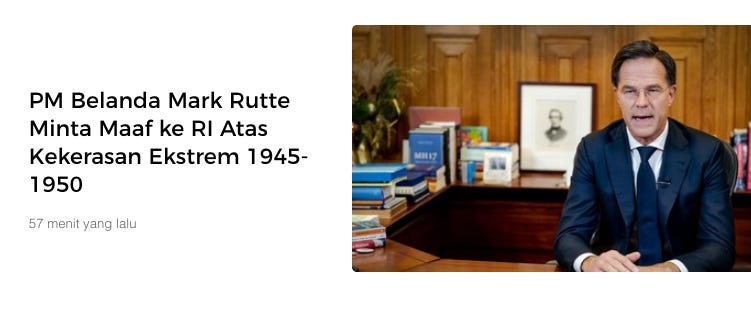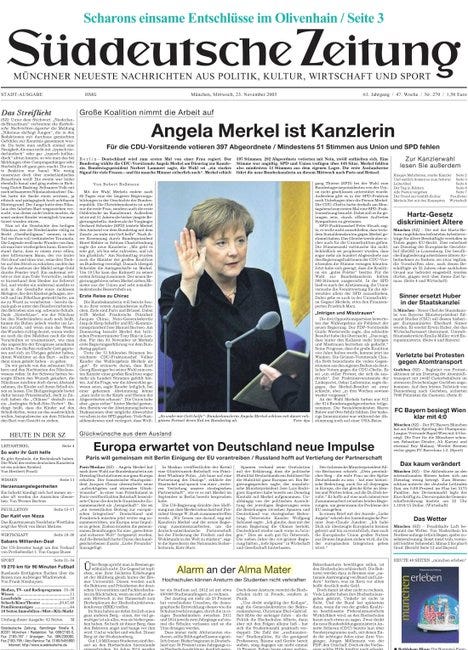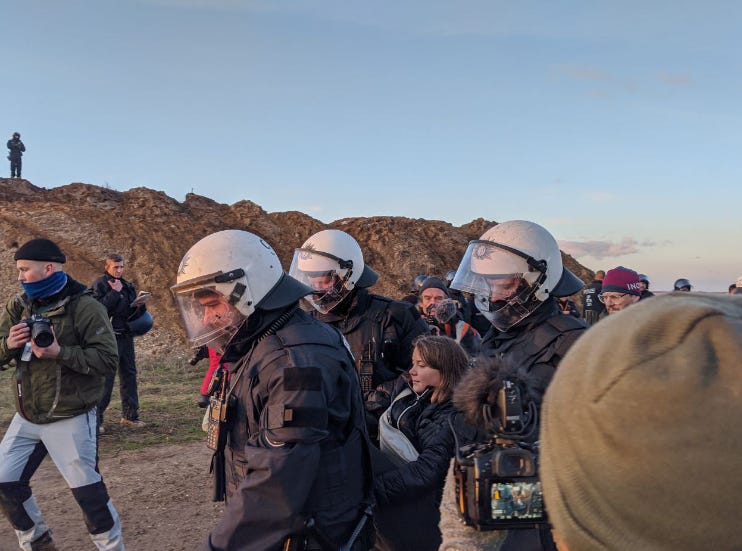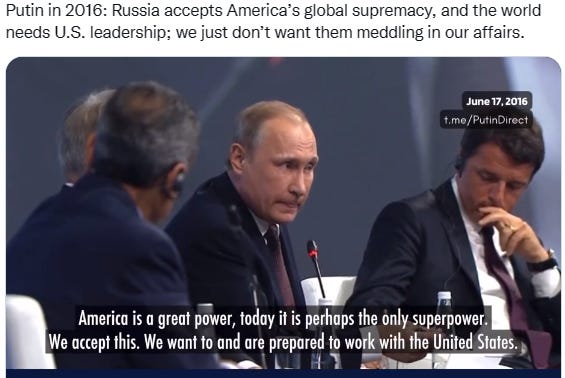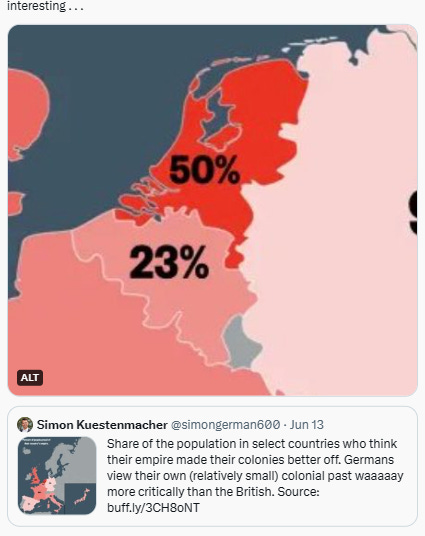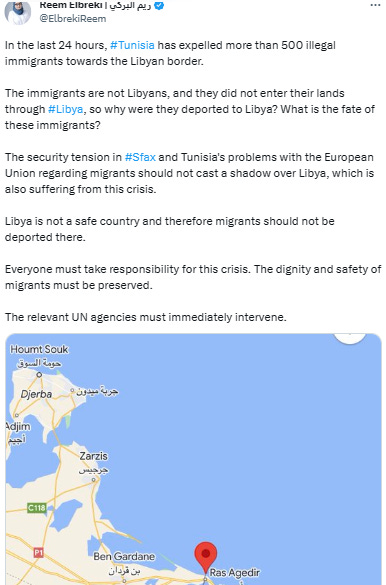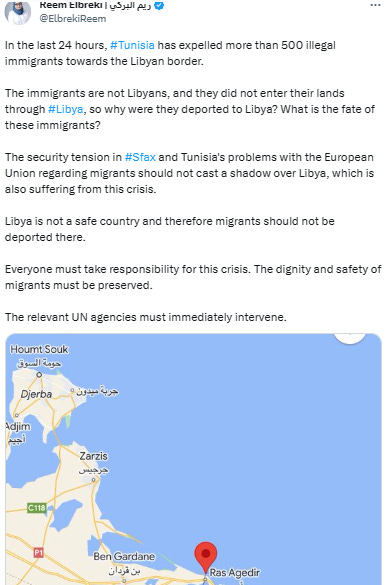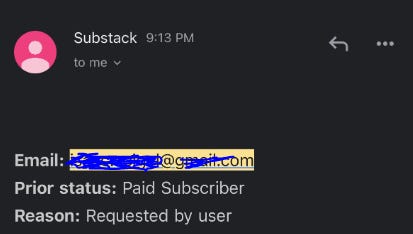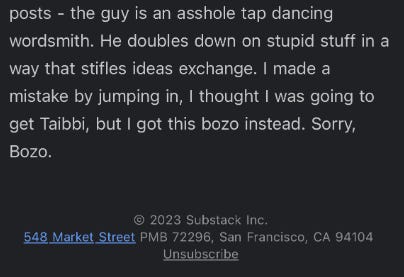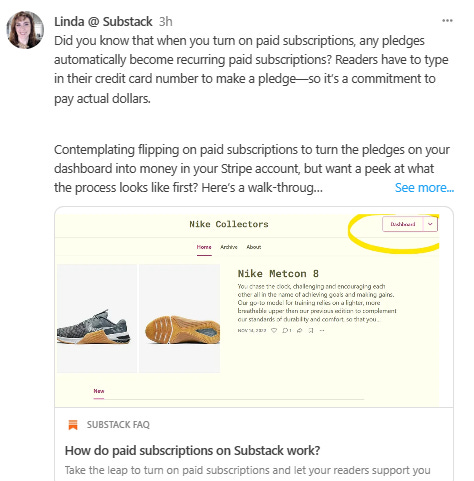Dutch premier Mark Rutte, longest serving, resigns because of deadlock on thorny issue of migration, paving way for new elections
London 9.55pm / Den Haag 10.55pm / 4.55pm DC
Almost EUR5-7 billion wipeout because clash, riot in France since the late (17 years old) Nahel killed by the French Police. Now Dutch Prime Minister Mark Rutte (Oct 2011 - July 7th, 2023) will resign over disagreements about how to rein in migration, triggering a general election later this year.
And even this news not the biggest news in Netherland.
Until 11pm local time/Netherland, Edwin van der Sar still no update but some source say he’s stable.
Back to Rutte.
This is the 6th regime change and or the fall of leadership in Europe members since Ukraine - War started (now Day499 / Day500) after 2x times in UK (Boris to Liz to Sunak), Italia (Draghi lose, Meloni wins), Finland (Sanna Marin lose), Sweden (Eva Magdalena Andersson lose, Ulf Hjalmar Ed Kristersson win), thanks for rocketed living cost every countries across the world (not only Europe) as impact of prolonged war (Ukraine - Russia) so people wants a regime change. Not count Czech (former President) Miloš Zeman because he’s retired from politics like Angela Dorothea Merkel in Germany. With this resgination, Merkel keep the longest ever leader (based on tenure years, Nov 22, 2005 - Dec 8th, 2021) in Western Hemisphere.
March 16th, 2023, a farmers' party has stunned Dutch politics, and is set to be the biggest party in the upper house of parliament after provincial elections.
The Farmer-citizen movement (BBB / BoerBurgerBeweging) was only set up in 2019 in the wake of widespread farmers' protests.
But with most votes counted they are due to win 15 of the Senate's seats with almost 20% of the vote.
"This isn't normal, but actually it is! It's all normal citizens who voted," said leader Caroline van der Plas.
The BBB aims to fight government plans to slash nitrogen emissions harmful to biodiversity by dramatically reducing livestock numbers and buying out thousands of farms.
But its appeal has spread rapidly beyond its rural heartland, on a populist platform that represents traditional, conservative Dutch social and moral values.
Shocked by the scale of their success, Ms van der Plas told supporters that voters normally stayed at home if they lost faith in politics: "But today people have shown they can't stay at home any longer. We won't be ignored any more."
A left-wing Green-Labour alliance is also on course to win 15 Senate seats, while Prime Minister Mark Rutte's four-party coalition is poised to fall back to 24 - down eight seats.
5 Days ago, Farmert Party “strongly agree” have a political support to topple PM Rutte.
Albert Hooijer wakes up at quarter to six to begin a 14-hour day tending to his 110 cows and 50 sheep in the peaceful town of Weesp, a short drive from Amsterdam.
It is a routine the 64-year-old has in his bones and in his blood. He’s been a dairy farmer, like his father and his grandfather before him, since he was 15.
But Mr Hooijer fears for when Gus, his 31-year-old son, follows in his footsteps and takes the farm into a fourth generation of family ownership.
The Hooijer Melkveehouderij is on the front line of the Dutch nitrogen crisis, which threatens to close it forever and to topple Mark Rutte, the country’s longest serving prime minister.
“I would like to see the farm continue but we are dying a slow death,” Mr Hooijer told The Telegraph at his farm, which produces milk for the world-famous Leerdammer cheese.
“Farming now is harder than it was. There are more rules and regulations. I wish people would understand that if we hurt farmers, we hurt society as a whole.
“People aren’t aware of how much they need farmers and the food they produce.”
In a desperate bid to meet EU climate change targets, Mr Rutte backed compulsory farm buyouts and strict restrictions on livestock to halve nitrogen emissions by 2030.
The Hooijer farm is particularly vulnerable because it is roughly half a mile from two EU protected Natura 2000 wetlands and nitrogen is emitted by manure and fertilisers.
The buyouts plan sparked open warfare between the centre-Right prime minister and his allies in The Hague and the furious farmers of the countryside.
The farmers launched a campaign of tractor protests that attracted tens of thousands flying the Dutch flag upside down and was punctuated by violent clashes with police.
It fuelled baseless claims of a “globalist landgrab” and of farms being cleared to house asylum seekers, as the fight was taken up by US conservatives, hard-Right politicians in Europe and the Internet’s army of conspiracy theorists.
Mr Hooijer and his wife Irene are facing a nervous wait to see if their farm will be among those slated to close, despite their insistence it is environmentally sustainable.
After years of burdensome regulations and economic pressure, some farmers in Weesp might be tempted to take the money and quit but not the Hooijers.
The Netherlands has a proud farming tradition and its members historically voted for establishment Right-wing parties.
It is the world’s second largest agricultural exporter, behind only the United States, despite only having a surface area of 16,000 square miles.
“We Dutch farmers are in nature every day, producing healthy nutrition for the country with dedication and a lot of knowledge. We maintain the land, maintain nature and work with nature,” Mr Hooijer said.
“But we are feeling the pressure and farmers feel helpless and exposed,” he said.
He accused Mr Rutte’s coalition of only focusing on agriculture and ignoring other polluters such as road transport or the flagship Schiphol airport less than half an hour’s drive away.
The Dutch government collapsed on Friday evening after 48 hours of “toxic infighting” over immigration between the four parties of prime minister Mark Rutte’s coalition – with asylum applications due to rise 50 per cent this year. BBB (Farmer-Citizen Movement Party) on immigration and asylum, the BBB supports accommodating refugees fleeing wars but prefers they be helped close to the region of where they are from rather than encouraging migration to the Netherlands and intends for most refugees to return home once the conflict is over.
It also calls for immigrants to already be employed and financially self-supporting before moving to the Netherlands, and they must learn Dutch, work and pay tax in the Netherlands for at least five years before becoming eligible for permanent residency. The party supports deporting illegal immigrants.
Mr Rutte has been under pressure from his own Liberal (VVD) party to bring immigrant numbers down. As the toughest talks so far between the coalition partners broke up at 2am on Friday, there was no sign that he was willing to give way, even if it meant going to the polls.
By far the longest serving Dutch premier (since October 14th, 2011), now leading his fourth consecutive coalition, Mr Rutte is known as a facilitator. However, as the latest talks ended, colleagues said he seemed uncharacteristically “willing to let the government fall” if agreement were not reached.
“Rutte seems to be on a collision course”, said one negotiator for the Christian Democrats, the second largest party. “He seems to be pushing for a crisis.”
This was dismissed by a spokesperson for the Liberals, who responded: “Rutte is not seeking conflict. He just knows this is a decision that needs to be made now.”
At the heart of the impasse was a proposal from Mr Rutte to introduce a “two-status” streaming system for asylum seekers, where those with A status would be allowed permanent residence, and those with B status would be allowed temporary residence.
In broad terms, those allocated A status would include migrants trying to escape long-term persecution or death in their own countries, while those fleeing war or political unrest would be considered B status applicants.
However – after eight months of negotiations leading to this point – the contentious question then arises as to whether those with B status should be entitled to bring family members to the Netherlands to be reunited.
Insofar as the details became clear, under the Rutte proposals a maximum of 200 family members of those with B status would be allowed to come to the Netherlands each month – but there would be a waiting time of two years before they received that clearance.
The opposition, however, was immediate. D66 leader and deputy prime minister, Sigrid Kaag, said they rejected the proposal on “humanitarian” grounds.
Christian Union, the smallest of the coalition partners, agreed, saying it was “anti-family”.
There were reliable reports that the prime minister “apologised” to the other parties on Friday for his earlier uncompromising attitude.
Even so, with parliament in summer recess since Thursday evening, it remained unclear how the talks could progress productively with no sign of willingness to compromise.
As one commentator observed on Friday evening: “It was never a happy marriage.”
Geert Wilders, leader of the anti-immigration Party for Freedom, tweeted, “Quick elections now.” Across the political spectrum, Green Left leader Jesse Klaver also called for elections and told Dutch broadcaster NOS: “This country needs a change of direction.”
Rutte had presided over late-night meetings Wednesday and Thursday that failed to result in a deal on migration policy. At one final round of talks Friday evening, the parties decided unanimously that they could not agree and, as a result, could not remain together in the coalition.
The decision underscored ideological divisions that existed from the day the coalition was sworn in just over 18 months ago between parties that do not support a strict crackdown on migration — D66 and fellow centrist party ChristenUnie, or Christian Union — and the two that favor tougher measures — Rutte’s conservative People’s Party for Freedom and Democracy and the Christian Democrats.
Similar discussions are going on across political divides elsewhere in Europe as migrants fleeing conflict or seeking a better life make perilous sea crossings from northern Africa to reach the continent. Hundreds of thousands of people also have fled the grinding war in Ukraine.
Migration is set to be an essential theme of European Union parliamentary elections next year, but the issue hit early in the Netherlands, a nation that has long been torn between a welcoming international outreach and increasing resistance to foreign influences.
Rutte’s coalition tried for months to hash out a deal to reduce the flow of new migrants arriving in the country of nearly 18 million people. Proposals reportedly included creating two classes of asylum — a temporary one for people fleeing conflicts and a permanent one for people trying to escape persecution — and reducing the number of family members who are allowed to join asylum-seekers in the Netherlands.
Last year, hundreds of asylum-seekers were forced to sleep outdoors in squalid conditions near an overcrowded reception center as the number of people arriving in the Netherlands outstripped the available beds. Dutch aid agencies provided assistance.
Just over 21,500 people from outside Europe sought asylum in the Netherlands in 2022, according to the country’s statistics office. Tens of thousands more moved to the Netherlands to work and study. Applications for asylum in the Netherlands rose by one-third last year to over 46,000 and are expected to top 70,000 this year.
The numbers have put a strain on housing that already was in short supply in the densely populated country.
Rutte’s government worked for a law that could compel municipalities to provide accommodations for newly arrived asylum-seekers, but the legislation has yet to pass through both houses of parliament.
The prime minister also promoted European Union efforts to slow migration to the 27-nation bloc. Rutte visited Tunisia last month with his Italian counterpart and the president of the EU’s executive commission to offer more than 1 billion euros in financial aid to rescue the North African nation’s teetering economy and to stem migration from its shores to Europe.
Rutte’s coalition government, the fourth he has led, took office in January 2022 following the longest coalition negotiations in Dutch political history.
The election for the lower house of the Dutch parliament later this year will take place in a polarized and splintered political landscape — there are 20 parties in the 150-seat lower house.
During provincial elections earlier this year, a populist pro-farmer party put Rutte’s party into second place. The defeat was seen as a possible incentive for Rutte to do his utmost to hold together his coalition until its term ends in 2025.
==========END————
Thank you, as always, for reading. If you have anything like a spark file, or master thought list (spark file sounds so much cooler), let me know how you use it in the comments below.
If you enjoyed this post, please share it.
If a friend sent this to you, you could subscribe here 👇. All content is free, and paid subscriptions are voluntary.
————
-prada- Adi Mulia Pradana is a Helper. Former adviser (President Indonesia) Jokowi for mapping 2-times election. I used to get paid to catch all these blunders—now I do it for free. Trying to work out what's going on, what happens next. Arch enemies of the tobacco industry, (still) survive after getting doxed. Now figure out, or, prevent catastrophic situations in the Indonesian administration from outside the government. After his mom was nearly killed by a syndicate, now I do it (catch all these blunders, especially blunders by an asshole syndicates) for free.
(Very rare compliment and initiative pledge. Thank you. Yes, even a lot of people associated me PRAVDA, not part of MIUCCIA PRADA. I’m literally asshole on debate, since in college). Especially after heated between Putin and Prigozhin. My note-live blog about Russia - Ukraine already click-read 4 millions.
=======
Thanks for reading Prada’s Newsletter. I was lured, inspired by someone writer, his post in LinkedIn months ago, “Currently after a routine daily writing newsletter in the last 10 years, my subscriber reaches 100,000. Maybe one of my subscribers is your boss.” After I get followed / subscribed by (literally) prominent AI and prominent Chief Product and Technology of mammoth global media (both: Sir, thank you so much), I try crafting more / better writing.
To get the ones who really appreciate your writing, and now prominent people appreciate my writing, priceless feeling. Prada ungated/no paywall every notes-but thank you for anyone open initiative pledge to me.
(Promoting to more engage in Substack) Seamless to listen to your favorite podcasts on Substack. You can buy a better headset to listen to a podcast here (GST DE352306207). Listeners on Apple Podcasts, Spotify, Overcast, or Pocket Casts simultaneously. podcasting can transform more of a conversation. Invite listeners to weigh in on episodes directly with you and with each other through discussion threads. At Substack, the process is to build with writers. Podcasts are an amazing feature of the Substack. I wish it had a feature to read the words we have written down without us having to do the speaking. Thanks for reading Prada’s Newsletter.




